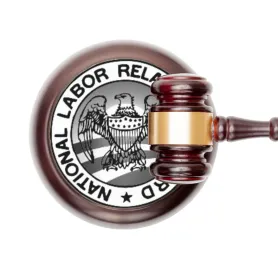On May 1, 2023, the National Labor Relations Board (the Board) issued its decision in Lion Elastomers LLC II and made it more difficult for employers to discipline employees for misconduct and outbursts. Now employers must consider the context of a worker’s outburst to determine if the worker exceeded the protections of the National Labor Relations Act (NLRA).
In Lion Elastomers LLC II, the Board overruled General Motors LLC 369 NLRB No. 127 (2020) in favor of prior “setting-specific” tests that provide workers with greater leeway for outbursts, confrontations, and blowups at work. Under General Motors LLC, the Board applied the Wright Line test and determined if an employee’s conduct lost the NLRA’s protection by evaluating whether an employer would have taken the same disciplinary action for an employee’s outburst or profane comments if it had not involved a work-related dispute. Thus, employers could discipline workers for harassing or discriminatory comments without consideration for the particular context or setting.
Now, under Lion Elastomers LLC II, the Board will look to different setting-specific tests depending on the context of an employee’s alleged abusive conduct. The decision highlights three tests: (1) the Atlantic Steel test, which governs employees’ conduct/outbursts toward management in the workplace; (2) the totality-of-the-circumstances test, which governs profane or threatening social media posts and certain workplace conversations among employees; and (3) the Clear Pine Mouldings standard, which governs picket line conduct.
In his dissent, Board member, Kevin Kaplin expressed concern that overruling General Motors LLC would allow workers too much room to abuse their supervisors and co-workers. While the majority states that the decision will enable employees to exercise their rights “without fear of punishment for the heated or exuberant expression and advocacy that often accompanies labor disputes,” the decision leaves employers to deal with potential abusive conduct without recourse.
Overruling General Motors LLC further places employers in a difficult position between complying with the NLRA and ensuring they adequately protect all employees from discriminatory or harassing comments and conduct. Moving forward, employers should ensure that their policies and practices give consideration to the specific context before disciplining an employee for abusive conduct, outbursts, or profanity. While the use of profane language or yelling at work would generally lead to discipline, extra attention is now necessary to ensure the misconduct does not implicate protected activity.





 />i
/>i
